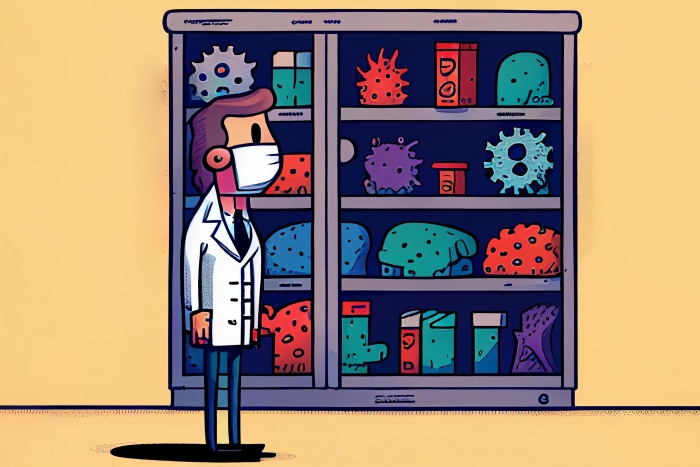 Johns Hopkins University
Johns Hopkins University
- Written by William D Snow
Check this out: Researchers Design New Approach to Creating Antibody Libraries
FeaturedThe approach could expedite the antibody-creation process and accelerate the discovery of therapeutic antibody candidates and vaccines.
An invaluable tool in the discovery and development of new therapies, "antibody libraries" are collections of genetically engineered antibodies used in research and industry to discover and develop therapies for viruses, cancer, and other diseases. A team of Johns Hopkins scientists and engineers has designed a new approach to generating antibody libraries that could not only expedite the antibody-creation process, but also accelerate the discovery of therapeutic antibody candidates, minimize risks to proper immune response, and make the entire process less costly and time consuming.
"These libraries are usually generated by engineers randomly mutating sequences. The result is that not every antibody generated is going to work or be well behaved in the body. Our approach is different: We used a deep-learning, artificial intelligence model to create high-quality libraries on demand," said team leader Jeffrey Gray, professor in the Department of Chemical and Biomolecular Engineering at Johns Hopkins University's Whiting School of Engineering and an associate in the Institute for NanoBioTechnology.
The research results are published in this article.
Read the full article at JHU Hub News.
Visible Legacy Comment
The development of their new tool "Immunoglobulin Language Model," or IgLM, was trained on a set of half a billion real human antibody sequences. The team envisions that this tool will enable faster discovery of therapeutic antibodies. They are now seeking a partner to move into experimental testing.
Additional Info
-
Navigator:
 Explore the map in Navigator
Explore the map in Navigator - Widget:
- Caption: Johns Hopkins Jeffrey Gray ecosystem
Related items
- The future of health care is in our cells
- Federal funding will help WSU professor develop technology to recover rare earth elements
- Unlocking the brain: Peptide-guided nanoparticles deliver mRNA to neurons
- Scientists Get to the Bottom of COVID’s Worst Pediatric Complication
- WSU-inspired national gene-editing task force begins work
